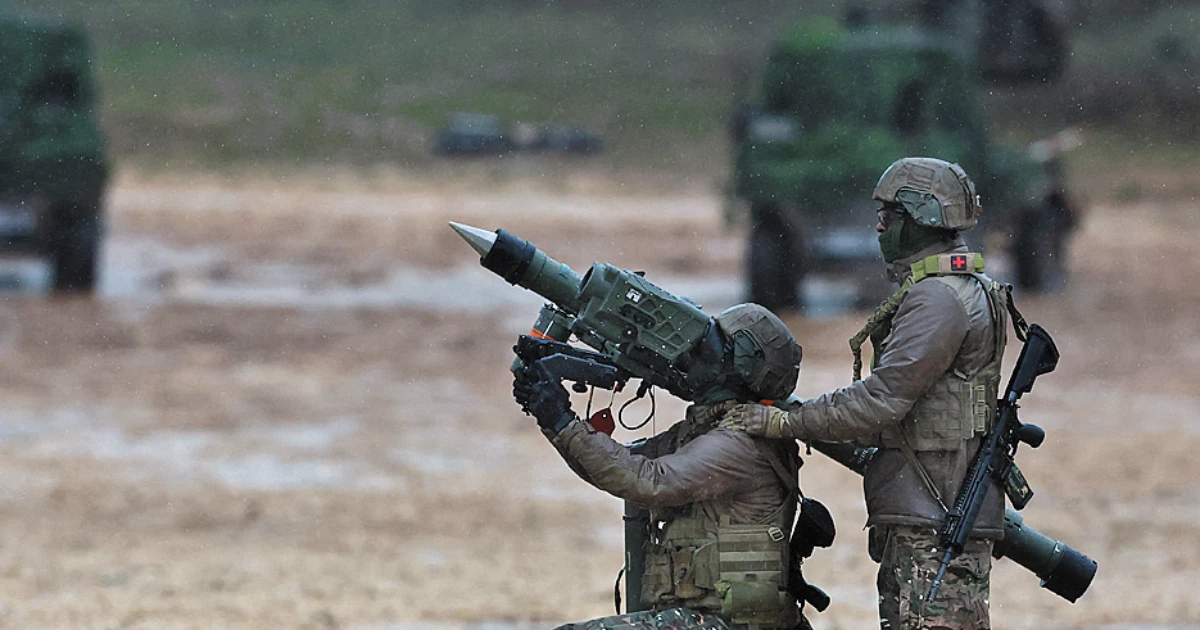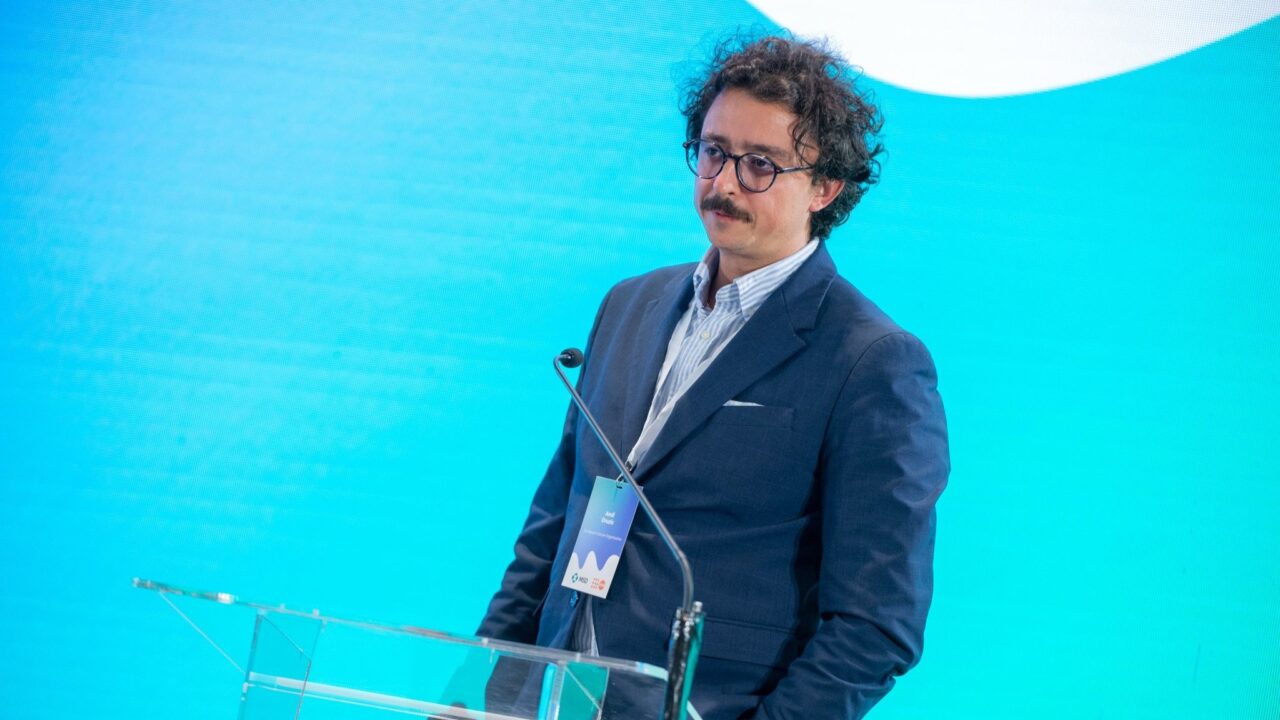NATO countries pledge more aid to east Europe
WARSAW, Poland — NATO said Friday it’s bulking up its defensive posture on its eastern flank bordering Belarus, Russia and Ukraine with new equipment to deter potential Russian aggression after an incursion by Russian drones into Polish territory.
The alliance’s supreme commander in Europe said a new operation, dubbed Eastern Sentry, will add equipment from France, Denmark, Germany and the U.K. to its existing air- and ground-based defenses.
“The key to this is an entirely new defense design,” U.S. Gen. Alexus Grynkewich told reporters at the alliance’s Brussels headquarters.
French Rafale fighter jets, Danish F-16s, a frigate and ground-based defense systems have been pledged for the operation.
Grynkewich said the additional resources will enable the alliance to “plug gaps in the line” and concentrate forces wherever they’re needed while improving communications across NATO’s entire eastern flank.
French President Emmanuel Macron said he would deploy three Rafale fighters to Poland, while Britain unveiled fresh sanctions on Russia’s oil revenue and war machines.
“The security of the European continent is our top priority. We will not yield to Russia’s growing intimidation,” Macron posted on X. He said the deployment was discussed with NATO Secretary-General Mark Rutte and British Prime Minister Keir Starmer.
Poland’s Defense Minister Wladyslaw Kosiniak-Kamysz hailed the operation in a post on X as “active deterrence and readiness to defend wherever needed.”
Multiple Russian drones crossed into Poland on Wednesday, prompting NATO to send fighter jets to shoot them down and underlining long-held concerns about Russia’s three-year war in neighboring Ukraine expanding.
Russia said it did not target Poland and Moscow’s ally Belarus said the drones went astray because they were jammed, but European leaders have expressed certainty that the incursions were a deliberate provocation by Russia.
Russia’s drone incursion into Polish airspace has also compelled NATO allies to take a closer look at the means at their disposal to counter any further threats.
The new measures announced by Britain on Friday included bans on 70 vessels the U.K. says are part of Russia’s “shadow fleet” that transports Russian oil in defiance of sanctions. Some 30 individuals and companies were also sanctioned for their part in supplying Russia with electronics, chemicals, explosives and other weapons components.
Denmark’s Foreign Minister Lars Løkke Rasmussen pledged expanded cooperation between the Danish and Ukrainian defense industries. Rasmussen said after talks with Ukrainian counterpart Andrii Sybiha that his country aims to increase its defense production in Ukraine and encourage more Ukrainian companies to set up shop in Denmark.
Also Friday, Russia stoked European unease as it launched a long-planned joint military exercise with Belarus aiming to showcase close defense ties between Moscow and Minsk, as well as Russia’s military might.
Kremlin spokesperson Dmitry Peskov said talks to end the war in Ukraine were currently on “pause,” even though channels of communication remain open.
“One cannot simply put on rose-tinted glasses and expect that the negotiation process will yield lightning-fast results,” Peskov said. “The Russian side remains ready to follow the path of peaceful dialogue.”
Ukrainian President Volodymyr Zelenskyy repeated that neither promises of renewed trade nor territorial concessions will stop Russia until it realizes that its resources for waging war against his country are depleted.
“The Russian war machine will only stop when it runs out of fuel,” Zelenskyy said at a conference Friday. “And Putin will start to stop it himself when he feels, truly, that the resources for the war are running low.”
Russian air defenses downed 221 Ukrainian drones over more than a dozen Russian regions early Friday, Russia’s Defense Ministry said. The attack involved some of the highest numbers of drones reported by the Russian military, but there have been no reports of any significant damage.
A Ukrainian security official said drones struck Russia’s largest oil port on the Baltic Sea in Primorsk, including oil pumping stations conveying oil to the Ust-Luga port terminal.
The official said Primorsk is a key hub for Russia’s “shadow fleet” of sanction-busting tankers that earn Moscow approximately $15 billion annually.
Information for this article was contributed by Lorne Cook, Jill Lawless, John Leicester, Ilia Novikov and Katie Marie Davis of The Associated Press.
Denmark’s Foreign Minister Lars Lokke Rasmussen, left, and Ukraine’s Foreign Minister Andrii Sybiha, right, walk in center of Kyiv, Ukraine, on Friday, Sept. 12, 2025. (AP Photo/Evgeniy Maloletka) Ukrainian Foreign Minister Andrii Sybiha, left, and Head of the Office of the President of Ukraine Andriy Yermak, right, welcome British Foreign Secretary Yvette Cooper upon her arrival at a railway station, amid Russia’s attack on Ukraine, in Kyiv, Ukraine, Friday Sept. 12, 2025. (Valentyn Ogirenko/Pool Photo via AP)
Ukrainian Foreign Minister Andrii Sybiha, left, and Head of the Office of the President of Ukraine Andriy Yermak, right, welcome British Foreign Secretary Yvette Cooper upon her arrival at a railway station, amid Russia’s attack on Ukraine, in Kyiv, Ukraine, Friday Sept. 12, 2025. (Valentyn Ogirenko/Pool Photo via AP) Pro-Ukraine protesters hold up placards and flags during a demonstration against the Royal Opera House in London, as the house had set an Russian opera singer to perform the lead in Puccini’s Tosca, Thursday, Sept. 11, 2025. (AP Photo/Joanna Chan)
Pro-Ukraine protesters hold up placards and flags during a demonstration against the Royal Opera House in London, as the house had set an Russian opera singer to perform the lead in Puccini’s Tosca, Thursday, Sept. 11, 2025. (AP Photo/Joanna Chan) NATO Secretary General Mark Rutte, right, and Supreme Allied Commander Europe (SACEUR), General Alexus G. Grynkewich address the media at NATO headquarters in Brussels, Friday, Sept. 12, 2025. (AP Photo/Virginia Mayo)
NATO Secretary General Mark Rutte, right, and Supreme Allied Commander Europe (SACEUR), General Alexus G. Grynkewich address the media at NATO headquarters in Brussels, Friday, Sept. 12, 2025. (AP Photo/Virginia Mayo)

 Bikes to dams – how hybrid threats shape reality in east Europe
Bikes to dams – how hybrid threats shape reality in east Europe  News in brief: East Europe | DEFENCE AND GEOPOLITICAL NEWS
News in brief: East Europe | DEFENCE AND GEOPOLITICAL NEWS  Airbus A321neo LR long-haul Middle East Europe
Airbus A321neo LR long-haul Middle East Europe  ALPLA expands in South-East Europe
ALPLA expands in South-East Europe  Amil Družić: Preventing HPV-Related Cancers in South-East Europe
Amil Družić: Preventing HPV-Related Cancers in South-East Europe